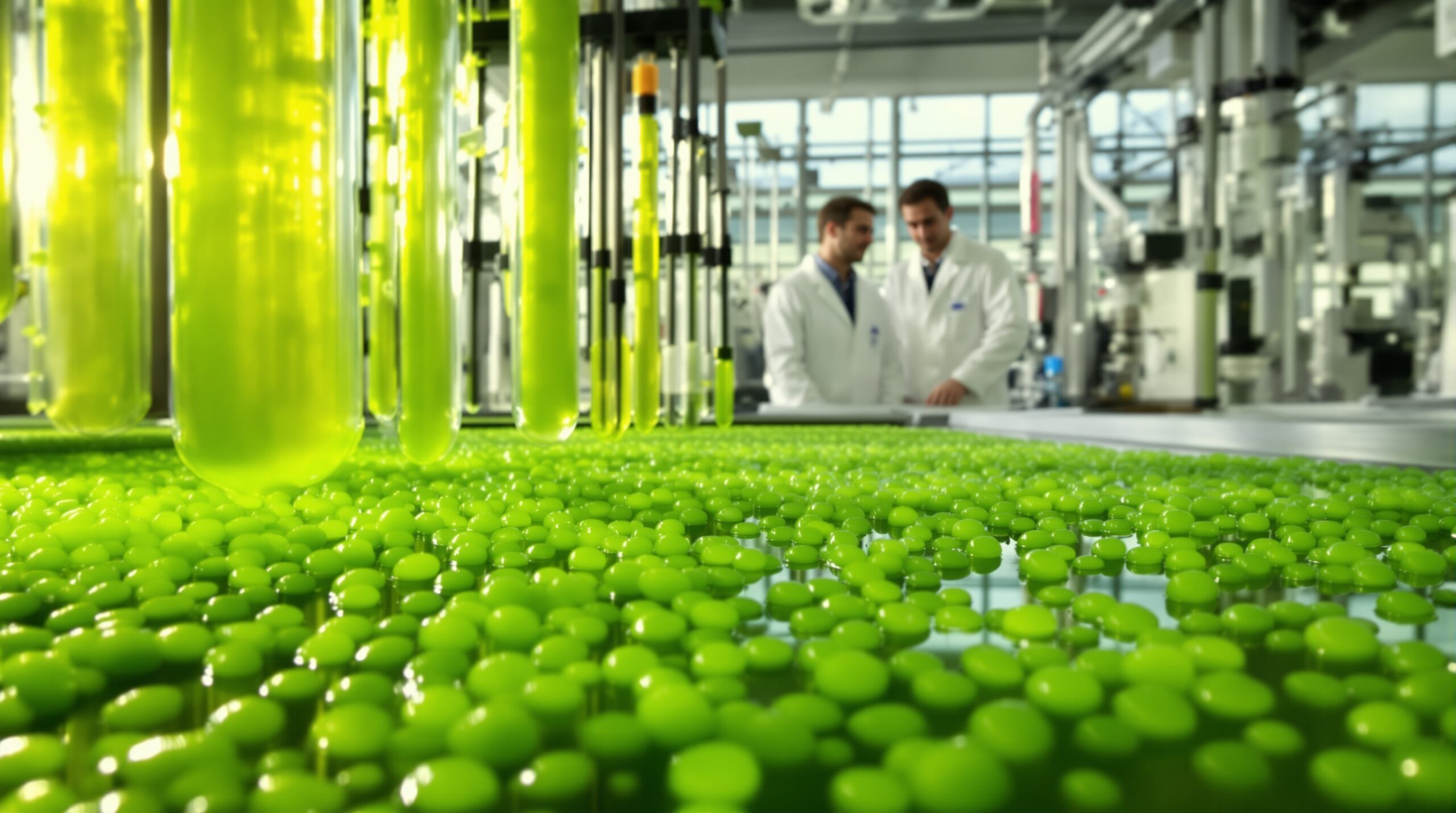Algae-based biofuels have emerged as a promising solution to the world’s growing demand for sustainable energy sources. Traditional fossil fuels contribute to greenhouse gas emissions and environmental degradation. Scientists and businesses are now turning to algae as a cleaner and renewable alternative. This shift could revolutionize the energy sector and help societies combat climate change.
What Are Algae-Based Biofuels?
Algae are diverse, fast-growing organisms found in oceans, freshwater, and even soil. These microorganisms photosynthesize, capturing carbon dioxide and sunlight to grow. Their rapid growth rates and high oil content make them ideal for biofuel production. Biofuels derived from algae include biodiesel, ethanol, and jet fuel.
Unlike traditional biofuels, algae do not compete directly with food crops. This greatly reduces pressure on arable land. With advancements in technology, it is now possible to cultivate algae efficiently in controlled environments. This innovation is driving interest in algae-based energy sources worldwide.
The Promise of Cleaner Energy
Algae-based biofuels are considered cleaner because they emit fewer greenhouse gases compared to fossil fuels. Algae consume carbon dioxide as they grow, partially offsetting emissions when the fuel is burned. This carbon-neutral cycle is a significant advantage in the fight against global warming.
Additionally, algae can grow using non-potable water, such as seawater or wastewater. This minimizes stress on valuable freshwater resources. Since they can be cultivated on non-arable land, there is no competition with food production or deforestation.
The environmental benefits extend to wastewater treatment as well. Algae absorb nitrogen and phosphorus found in wastewater. This natural process helps purify water, supporting ecological restoration efforts along with energy production.
Recent Advances in Algae Biofuel Technology
Recent technological innovations have improved algae cultivation and fuel extraction processes. Scientists have engineered algae strains that yield more oil or grow faster. Genetic modifications and optimized growth conditions help maximize productivity and efficiency.
Automated bioreactor systems allow for precise control of temperature, light, and nutrients. These systems are scalable, making commercial algae production more feasible. Closed-loop systems can reduce contamination and boost harvest frequency.
New harvesting techniques, such as membrane filtration and centrifugation, separate algae from water efficiently. Advancements in extraction technology recover more oil with less energy. These improvements lower the overall cost and environmental footprint of algae-based fuels.
Large-Scale Projects and Commercial Applications
Several large-scale algae biofuel projects are underway around the world. Companies and governments are investing in pilot plants and demonstration facilities. These projects help gather data on costs, scalability, and integration with existing infrastructure.
Major airlines and shipping companies have tested algae-based biofuels in real-world conditions. Flights powered by algae-derived jet fuel have successfully completed long-haul journeys. These milestones demonstrate the viability and safety of algae fuels in demanding industries.
Automotive companies are also exploring algae-based biodiesel for use in regular diesel engines. Partnerships between technology developers and car manufacturers are accelerating product development. These collaborations could bring algae biofuels to consumers in the coming decade.
Economic and Environmental Challenges
Despite impressive progress, several challenges remain before algae-based biofuels can achieve mass adoption. Production costs are still higher than those for fossil fuels. The price gap makes it harder for algae-derived fuels to compete without subsidies or policy support.
Scaling up from laboratory experiments to commercial production introduces technical difficulties. Algae cultures can be vulnerable to contamination, pests, and changes in weather. Effective large-scale management strategies are necessary to ensure a reliable fuel supply.
Environmental considerations also play a role. Energy is required for cultivation, harvesting, and oil extraction processes. It is crucial to ensure that total energy output from algal biofuels exceeds the energy invested in production.
Policy Support and Future Prospects
Governments are beginning to recognize the potential of algae-based biofuels. Research grants, tax incentives, and renewable energy targets can boost investment in algae biofuel companies. Clear regulations and market signals encourage private capital to support promising projects.
International collaborations further accelerate progress. Countries can share research findings, development strategies, and infrastructure. This global approach could help solve challenges and scale up algae biofuel adoption worldwide.
Algae-Based Biofuels and a Sustainable Future
The advantages of algae-based biofuels extend beyond energy production. Algae can play a role in carbon capture and environmental cleanup. Integrated algae farms can purify wastewater or utilize industrial carbon dioxide emissions directly.
In coastal regions and desert areas, algae production provides new opportunities for sustainable economic development. Job creation and local infrastructure investments support communities previously dependent on fossil fuels or struggling with land degradation.
Combining biofuel production with other valuable products further improves economic viability. Algae can produce protein-rich animal feed, fertilizers, and even natural pigments. This integrated approach maximizes resource use and returns on investment.
Conclusion: A Cleaner, Greener Tomorrow
New algae-based biofuels offer remarkable potential for a cleaner and sustainable future. With lower emissions and fewer environmental impacts, they present a compelling alternative to conventional fossil fuels. Continued research, investment, and policy support will be critical for overcoming present challenges.
The world stands at an important crossroads in the search for sustainable energy solutions. Algae-based biofuels, with their numerous benefits, could become a key pillar in a low-carbon energy landscape. If technological and economic barriers are addressed, algae could help secure a greener tomorrow for generations to come.

